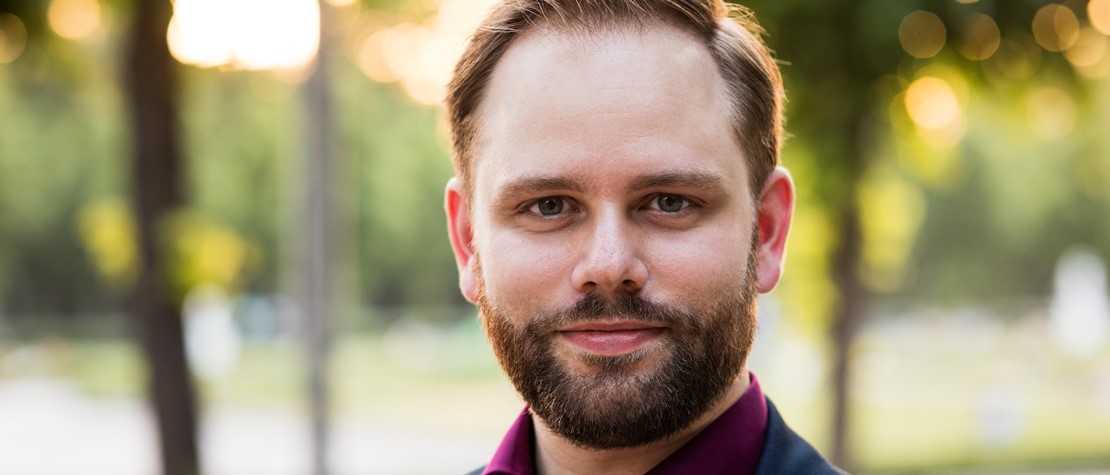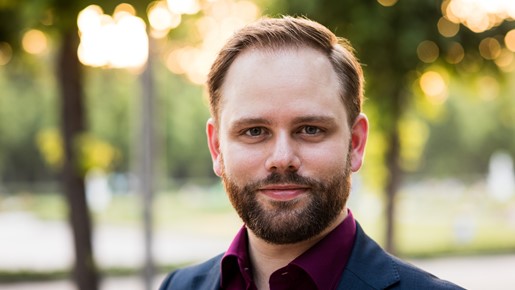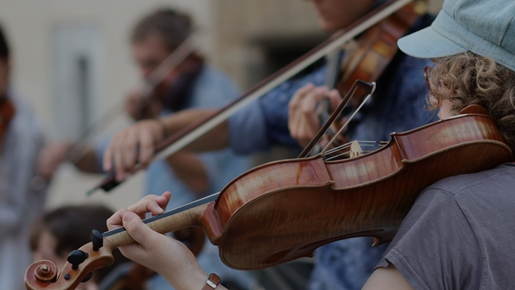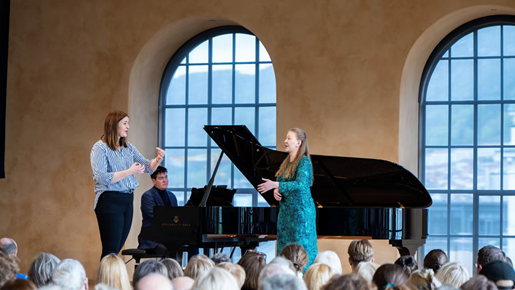– I have always been fascinated by the orchestral repertoire
03.07.2019 / Meet Daniel Reith, winner of Opptakt, Talent Norges top launch program in Dirigentløftet.
Tell us a little about yourself! What is your musical background?
After studying piano and musictheory in Freiburg in Germany with Christoph Sischka and Ludwig Holtmeier, I studied piano in Oslo with Einar Steen-Nøkleberg, Håvard Gimse, Jens Harald Bratlie and Liv Glaser. Later I started my conducting studies at the Academy of Music in Frankfurt am Main in Germany with Wojciech Rajski and Vassilis Christopoulos. During the academic year 2018/19 I was having lessons with Ole Kristian Ruud while attending a one-year-programme at NMH with Sigmund Thorp. I’ll start my Master in conducting with Ole Kristian Ruud in August of this year.
You won Opptakt, Talent Norges top launch program in Dirigentløftet. How did it all start?
While studying piano in Oslo, I always had an eye on the conducting class and education in Oslo. I moved completely to Oslo last summer and plan to establish myself in Norway. Dirigentforum and Opptakt gives very attractive and important possibilities for the personal development and experience with professional orchestras. For these reasons I applied for it. That I will get the chance to conduct all the norwegian professional orchestras in a row seems like a dream for me.
Do you want to pursue a career in conducting symphonies?
Yes, definitely! I would say there are mainly two reasons for this. The first reason is that I have always been fascinated by the orchestral repertoire. Most of the composers put their greatest thoughts and efforts into their orchestral compositions. For a long time and, for many Composers, writing a symphony counted as the highest form of musical art. To discover those climaxes of compositional works is one of the most exciting things. As a pianist I was of course also surrounded by masterpieces, but the orchestra literature with all its facets and nearly unlimited possibilities is once more a universe by itself.
My interest also goes in the same amount to the opera repertoire. I’ve been working in some productions as conductor and répétiteur and really like the work with singers, so it would be great if I could manage to establish myself in both, symphony and opera.
The second reason is that I find the complexity of the conductor's jobb positively challenging and attractive. I find the psychological aspect of leading an orchestra very exciting. Only if I manage to transfer my ideas clearly and keep up a constant interaction with the musicians, there will be a good result. So besides the musical part there is also a very social component in conducting. I think this is a field that needs to be studied for a whole life and I'm looking forward to it.
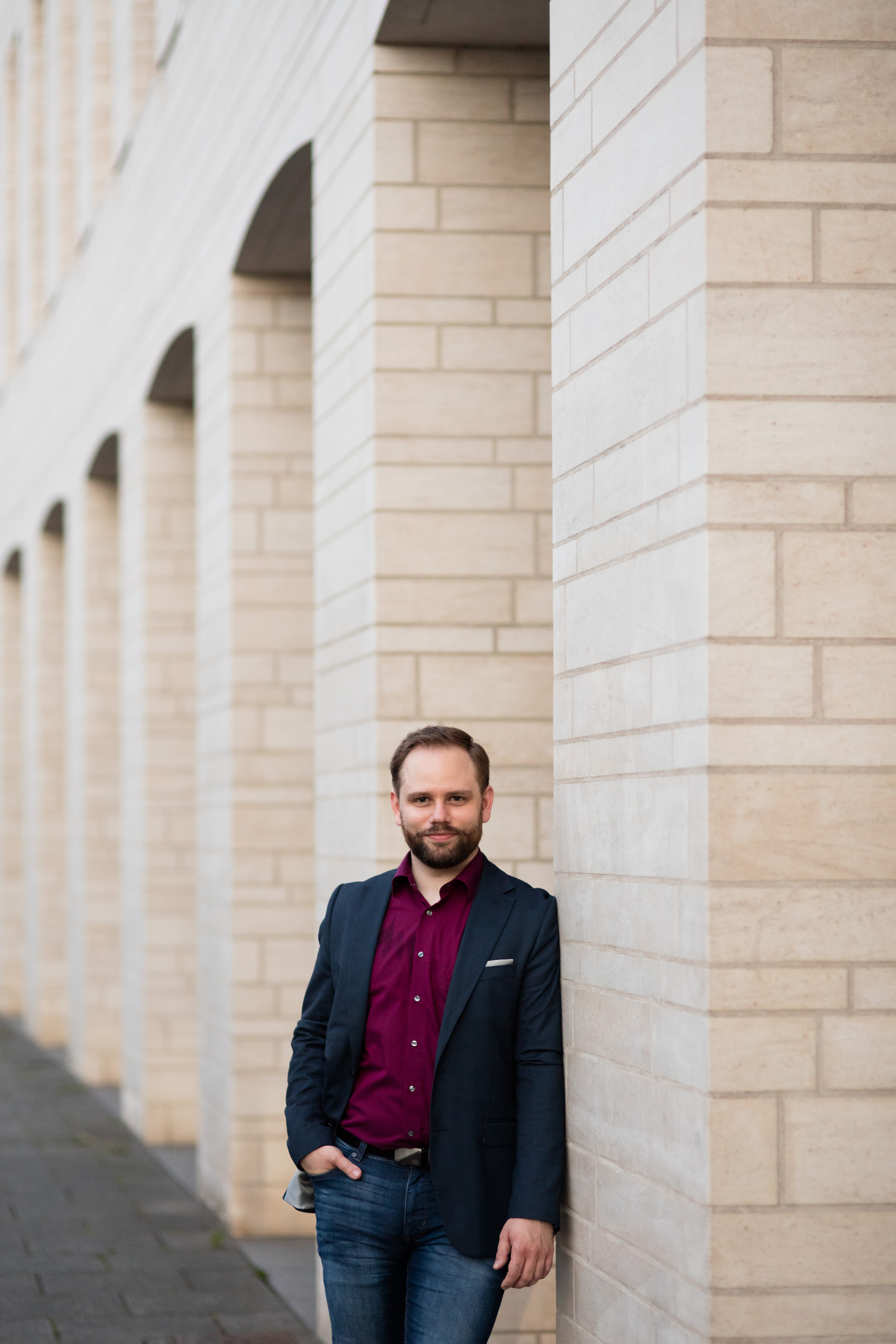
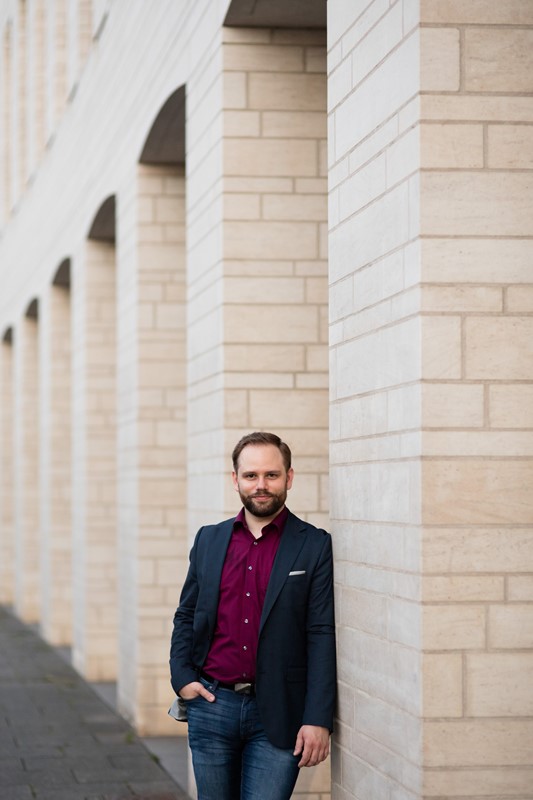
Photo: Daniel Bollinger
Can you describe how you work? What are you concerned with when collaborating? What do you look for in the music? How do you communicate with the musicians?
Basic for everything is of course to have studied a score extensive and be very conscious about all details of the own interpretation. When working with a professional orchestra, I try to fascinate and win the musicians for my interpretation, but at the same time also react and work on what the orchestra offers. Sometimes it‘s of course hard beeing a conductor at the beginning of the career, meeting very experienced orchestra musicians that have a high expectation that has to get fulfilled. But I think our most common point to meet succesfully is the shared fascination for this music since we all decided to study music and dedicade our life to it. So when communicating with the orchestra musicians, I always try to do it with respect and appreciation, but yet decided in terms of reaching a clear interpretation.
To what extent do you emphasize the emotional versus the technical?
I think technique and emotion is not possible to separate from each other. To be able to transfer the musical thoughts and emotions it needs a good technique, but without musical content the best technique is useless. So one goes into the other.
Which mentors have been important to you?
All the teachers mentioned above were and are very important for me and my development. To pick out one wouldn't pay enough credit to another. Since I would describe my previous mentors as quite contrasting to each other, I'm thankful for all the different perspectives and views I have received.
What do you think is the most important skill of a conductor?
If I have to decide on one certain thing it's perhaps, to keep and share a life long curiosity, spread and share the fascination for making music and never let making music become a routine.
You will follow all events of Dirigentforum level 1 + level 2, starting off to conduct Trondheim Symphony Orchestra, Bergen Philharmonic + Gothenburg Phil – all that in August alone. How do you prepare for this?
It is very hard to give a clear answer to this question, because finally the mind is working all the time on the scores and an idea or a solution to a problem can come to mind while standing at a traffic light or while being half asleep. At the beginning of the preparation process I try to arrange my days so I have as much time as possible to spend with the scores and structure my schedule, so I know exactly how much time I have availiable for each piece. Then I try to collect as much background information as possible to understand what the historical situation and atmosphere was, when the piece was written. Also going through documented perspectives of big conductors on the pieces is very important for me. After this, an extensive musical analysis of the score leads ,step by step, to a clear idea of my musical interpretation of the piece. I then talk to different instrumentalists to get advice concerning the instrument technical realisation of my ideas and to know about instrument specific problems of the score in advance.
You are already on the radar for int managements. Can you tell us some more about your plans for the future? What is your dream?
My dream is simply to make very good music with very good musicians and reach people with our art and give something to their life. This is possible in so many ways and I don't want to define a certain way it has to look like. But of course in general I dream to make my life as a professional conductor leading professional orchestras. Dirigentforum and Opptakt means a very big step towards this aim and the big amount of repertoire and experience with orchestra gives me the important chance to make this dream become true, so I’m very excited and looking forward to the next years in these two programmes.
![Talent Norge http://[Storage Account Name].blob.core.windows.net/media/1046/logo-white.svg](https://talentnorgewebprod.azurewebsites.net/media/1046/logo-white.svg)
